Discovery Institute's Blog, page 223
September 9, 2014
Are Biologists Rejecting Neo-Darwinian Evolution?
As Paul Nelson recently observed, Robert Bishop's response to Darwin's Doubt over at BioLogos tries to deny that any evolutionary biologists are entering a post-Darwinian world where they are abandoning neo-Darwinism. He writes:
Meyer successively reviews a variety of attempts, such as evo-devo [evolutionary developmental biology] to rectify this shortcoming in macroevolution. Each attempt surveyed is presented to the reader as being in competition with and a replacement for neo-Darwinian evo...
Alternative Splicing: The Film Editor of the Genome
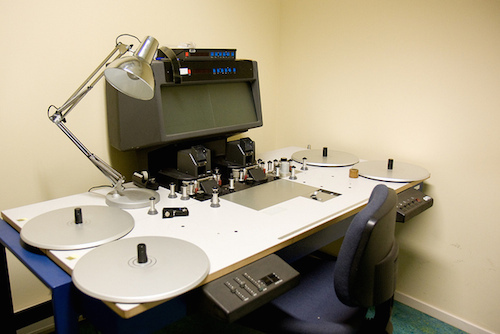
A story in the Harvard Gazette shows again that there are multiple levels of information in the genome beyond genes themselves. Experiments by John Calarco and Adam Norris are featured in the article.
"There are a finite number of genes in the genome, and changing which of those gets turned on or off gives you a certain level of complexity," Calarco said. "What alternative splicing does is add another layer of complexity, allowing an organism to diversify a cell type even more -- we think th...
September 8, 2014
Still Awaiting Engagement: A Reply to Robert Bishop on Darwin's Doubt
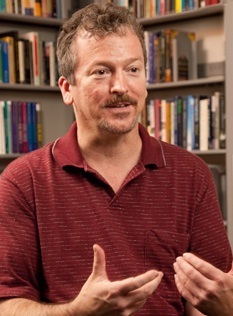
Biologos has posted the next segment of its comprehensive response to Darwin's Doubt (hereafter, DD). Disappointingly, these entries - comprising parts 1 and 2 of philosopher of science Robert Bishop's 4-part critique - do not reply to the scientific arguments or evidence presented in DD. Instead, Bishop focuses on what he calls the "rhetorical strategy" of DD, and its framing of the current status of evolutionary theory. Bishop finds fault both with the rhetoric and the framing of DD, but,...
War on Humans: Evil People Infect Monkeys with Ebola!
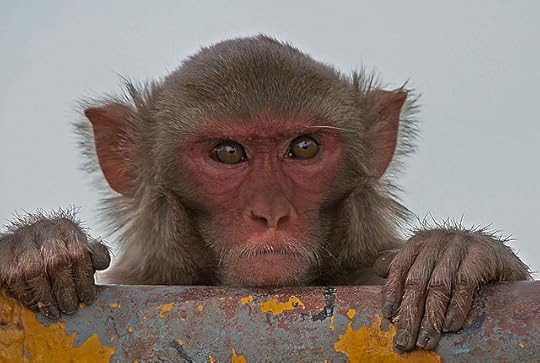
Animal researchers love to sadistically torture animals, liberationists tell us. Animal research is useless. It does no good.
Use computer programs or cell lines -- or people. Anything else is pointless cruelty.
Thisanimal rightsargument is strong on emotion and devoid of rationality. Case in point: The desperate attempt to find a treatment for Ebola, devastating Africa and threatening the world. From the Star Phoenix story:
Canadian scientists have rescued from death monkeys that were infecte...
September 6, 2014
Another Example of Convergent Biochemical Evolution: Caffeine
Sometimes I feel a bit like an odd-man-out living in Seattle, the coffee house capital of the U.S., because I don't like coffee. Don't get me wrong -- I'm no saint when it comes to caffeine. I just prefer to obtain the chemical through other means: I love tea (I've never tried a tea I didn't like), and I'm also a lifelong addict connoisseur of that sweet intelligently designed nectar known as Mountain Dew. (Here's a shot of a shelf in my office sporting a small basalt column and two bottles o...
September 5, 2014
Books and Journals Continue to Promote Misrepresentations of Copernicus and Human Exceptionalism
A review in Nature shows how entrenched the Copernican "demotion" myth remains, even after scholarly works have refuted it:
All the astronomical discoveries made since Nicolaus Copernicus demoted Earth from its position at the centre of the Universe have continued to erode humanity's perceived physical significance in the grand scheme of things. (Emphasis added.)
The facts are quite different. Copernicus (who believed in intelligent design) would never have endorsed the "Copernican Principle"...
September 4, 2014
Self-Folding Robot Suggests Answer to Common Objection to Intelligent Design
An article that recently appeared on Google News, "Origami robot doesn't need a human to assemble itself and start working," has a fascinating video of a self-folding robot that mimics the way proteins or insect wings spontaneously fold into their functional form.
This suggests an answer to a common objection to the theory of intelligent design. The objection, stated in various forms by thinkers dating back to David Hume, goes something like this:
We do observe that intelligent designers build...
September 3, 2014
Two Flagella Are Better than One
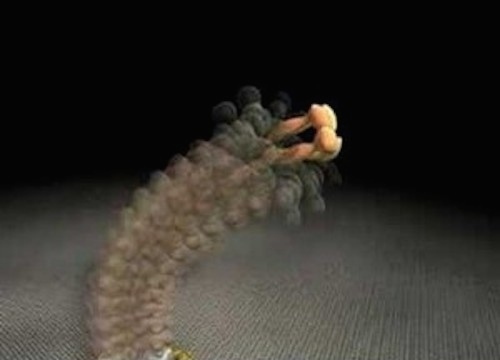
As imaging improves, so does knowledge of the workings of the bacterial flagellum. Two new papers point out new findings about these outboard motors that contribute to the argument that they are irreducibly complex and intelligently designed. As could be predicted, neither attempts any explanation of how they could have evolved.
Secondary Flagella
One paper in PNAS by German scientists explores the advantage of having two flagella, one at the rear and another one or two on the sides. If you we...
Upcoming Event in the Spokane Area: Science & Human Origins Conference
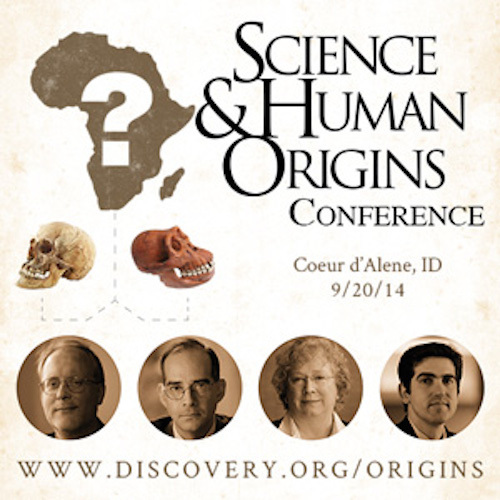
Did human beings evolve from earlier animals? Was the process that produced human beings guided or unguided? And does it matter? Ever since Darwin, people have wrestled with what modern biology tells us about human origins and human uniqueness. Here is your chance to learn about the current state of the scientific evidence, separate fact from fiction, and to explore why it matters. Plus you will get to see the premiere of Privileged Species, an exciting new documentary that examines how our...
September 2, 2014
Save Your Brain: Skip Luc Besson's Fantastical Lucy
 Recently I was referred to see the new sci-fi movie Lucy starring Scarlett Johansson and Morgan Freeman, largely because of its strong emphasis on biological evolution and transhumanism. The movie has made an impressive showing at the box office, earning over $200 million worldwide on a production budget of only $40 million. Reviews at Rotten Tomatoes are tepid but not terrible with only 65 percent of critics endorsing the movie, and only 48 percent of the audience recommending it. Warning: s...
Recently I was referred to see the new sci-fi movie Lucy starring Scarlett Johansson and Morgan Freeman, largely because of its strong emphasis on biological evolution and transhumanism. The movie has made an impressive showing at the box office, earning over $200 million worldwide on a production budget of only $40 million. Reviews at Rotten Tomatoes are tepid but not terrible with only 65 percent of critics endorsing the movie, and only 48 percent of the audience recommending it. Warning: s...
Discovery Institute's Blog
- Discovery Institute's profile
- 15 followers




